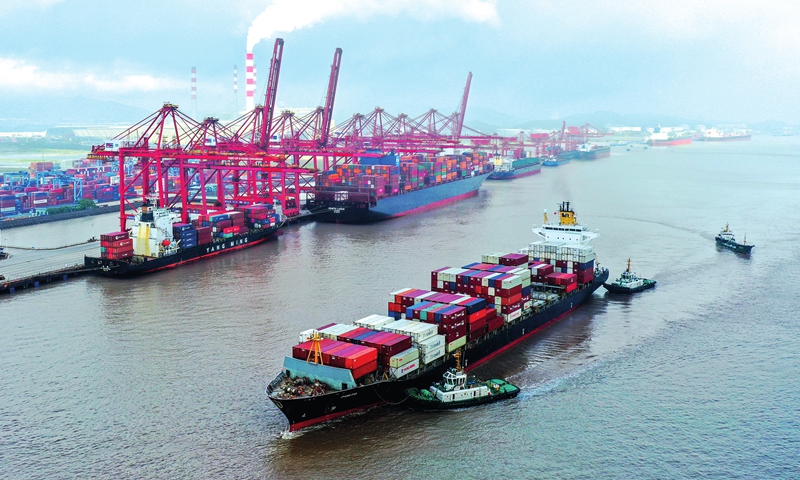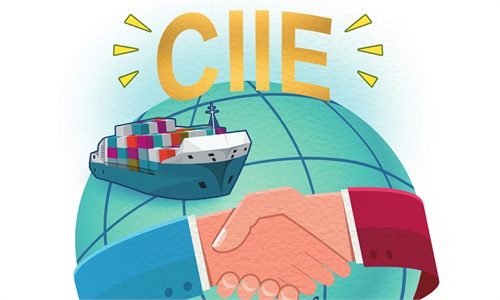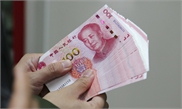
Cargo ships carrying containers pile up at the Ningbo Zhoushan Port in Ningbo, East China's Zhejiang Province. File Photo: cnsphoto
Singapore's Prime Minister Lee Hsien Loong said on Tuesday that China's participation in the Comprehensive and Progressive Agreement for Trans-Pacific Partnership (CPTPP), a major trans-Pacific free trade agreement, would be "good" for the bloc, reiterating Singapore's positive stance even as some other players appear more skeptical, Nikkei Asia reported.
Aligning with high-standard international trade rules, China filed an application to join the CPTPP last year. Chinese Ministry of Commerce spokesperson Gao Feng said in May this year that the country will expand high-level opening-up and will continue to advance its accession into the CPTPP.
While the world economy has entered a period of intense uncertainty amid the rise of trade protectionism, China has been a strong advocate of globalization and free trade. In recent years, the country has reduced or cancelled tariffs on certain imported goods and materials in a bid to expand imports and support the formation of high-standard free trade zones.
With a new round of high-level opening-up, China has become a large and growing market for most emerging and developed economies in the world. But recently, some Western media outlets have run reports about "economic decoupling from China" and "technological decoupling," which constitutes a new round of bad-mouthing China's economy with a sinister intention to exclude China from the global supply chain. The current debate on economic decoupling has been driven more by a zero-sum geopolitical mentality rather than an objective and rational analysis based on economic rules. From an economic standpoint it would be ridiculous to advise any economic entity to decouple from China. As long as China remains an important consumer market, such decoupling will be untenable.
Decoupling has been pushed by some politicians in the West through unilateral and disruptive legislation or regulation, but rational voices calling for economic globalization and free trade have also emerged. German Chancellor Olaf Scholz said at a conference in Berlin last week that decoupling from China would be the wrong path. Lee's words backing China's participation in the CPTPP can also create positive effects in supporting globalization and free trade and opposing decoupling.
More of such rational, sensible and positive voices are needed now, for several reasons. First, China has grown to become the world's largest buyer of a number of commodities, such as copper. It is impossible to exclude China from the global supply chain and the world's economy.
Second, Chinese officials have reiterated many times that the country will unwaveringly expand high-level opening-up and push for economic globalization that is open, inclusive, balanced and beneficial to all. China's potential participation in free trade arrangements such as the CPTPP will help to promote globalization as well as to explore domestic demand and offer multinational companies more opportunities.
Third, the global economy is headed for years of weak growth as a result of the COVID-19 pandemic, inflation, a looming debt crisis and other uncertainties. It has been a very difficult time, and what we need now is cooperation and coordination rather than economic decoupling.
The author is a reporter with the Global Times. bizopinion@globaltimes.com.cn



